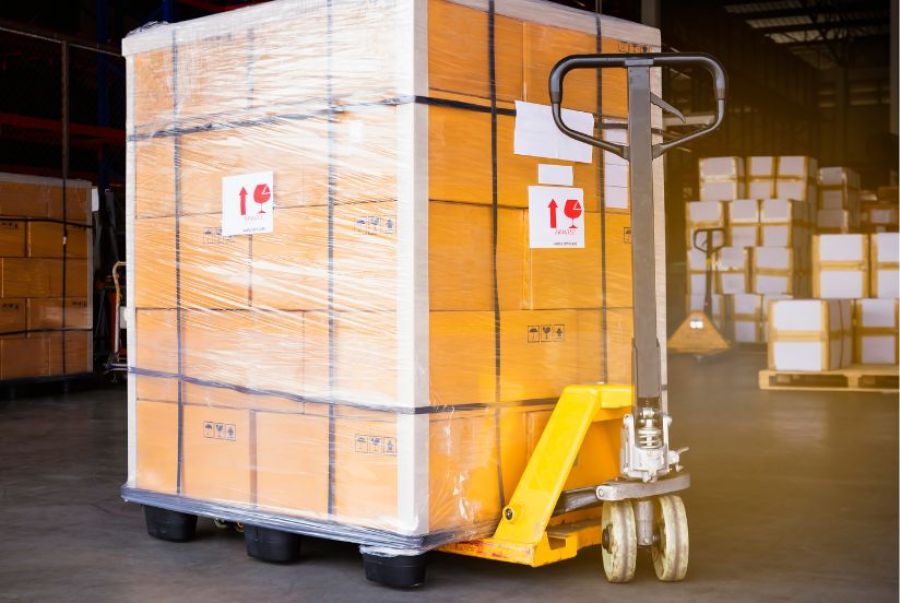Securing Your Cargo: Partial Truckload Shipping for High-Value or Fragile Shipments

TL;DR: Partial Truckload (PTL) shipping is ideal for high-value or fragile cargo, offering a secure and cost-effective option between Less Than Truckload (LTL) and Full Truckload (FTL). PTL provides dedicated space within a truck, reducing risks of damage or theft. Key benefits include specialized packaging, real-time tracking, and use of specialized equipment. For optimal security, choose carriers with expertise in handling delicate items, ensure proper insurance coverage, and comply with relevant regulations. PTL is a strategic choice for maintaining the safety and integrity of valuable or fragile shipments.
Ensuring the safety and integrity of high-value or fragile cargo during transportation is paramount. For such items, Partial Truckload (PTL) emerges as a strategic solution, offering a middle ground between Less Than Truckload (LTL) and Full Truckload (FTL) shipping. PTL provides a cost-effective and secure option, accommodating shipments that may not fill an entire truck but require dedicated space and careful handling.
Understanding the Needs of High-Value or Fragile Cargo
High-value cargo refers to goods with significant monetary worth, often requiring special handling and security measures. Fragile cargo includes delicate goods prone to breakage during transportation. Securely transporting such items involves challenges like specialized packaging, stringent security protocols, and careful handling to prevent damage or theft. Choosing the right shipping method, like Partial Truckload (PTL), is crucial to effectively address these challenges while maintaining cost efficiency.
Benefits of Partial Truckload for Security
Partial Truckload (PTL) enhances cargo security by providing dedicated space within a truck trailer for shipments that don’t fill the entire truck. This reduces the risk of damage or tampering during transit, as cargo is not co-mingled with other shipments. PTL offers a middle ground between the cost-effectiveness of Less Than Truckload (LTL) and the dedicated space of Full Truckload (FTL), making it an optimal choice for secure transportation of high-value or fragile items without sharing space with unrelated shipments.
Packaging Best Practices
Proper packaging is crucial for high-value or fragile cargo, providing a protective barrier against potential damage during transportation. Secure and robust packaging, including specialized materials like bubble wrap or foam, helps safeguard items from shocks and external factors. Double boxing and sufficient padding absorb shocks, and labeling packages as fragile alerts handlers to exercise caution. Adequate inner and outer packaging layers, along with proper labeling, contribute to the overall protection of high-value or fragile cargo throughout the shipping process.
Tracking and Visibility
Real-time tracking in Partial Truckload ensures continuous visibility into the location and status of cargo, offering precise and up-to-the-minute information throughout its journey. This technology enhances security and accountability by providing detailed insights into the transportation process. Stakeholders can monitor cargo movements, identify potential delays, and respond promptly to unforeseen events, ensuring a higher level of security and enhancing overall accountability in Partial Truckload shipments.
Specialized Equipment and Handling
Specialized equipment is vital for securing fragile items in Partial Truckload shipments. Tailored solutions like cushioned pallets, climate-controlled containers, and custom crating protect delicate cargo from vibrations, shocks, and environmental factors. Trained handling staff are indispensable for ensuring cargo security, implementing proper loading, securing, and unloading procedures to minimize the risk of damage to fragile items. Their understanding of the unique requirements of delicate cargo helps prevent shifts, impacts, or other potential sources of harm during transportation. The combination of specialized equipment and skilled handling staff contributes to the overall security and safety of high-value or fragile items in Partial Truckload shipments.
Carrier Selection Criteria
When selecting a carrier for high-value or fragile shipments, key factors include the carrier’s experience in handling delicate items, a track record of secure transportation, and the availability of specialized equipment. Evaluate their commitment to safety measures, including secure packaging and proper handling protocols. Carrier reputation and experience are pivotal, reflecting a commitment to professionalism, reliability, and adherence to stringent security standards. Opting for carriers with a proven track record in handling such items ensures a higher likelihood of effective safety protocols and investment in specialized equipment for secure transportation.
Insurance Considerations
Ensuring the security of high-value cargo includes obtaining comprehensive insurance coverage, offering financial protection against potential risks during transportation. Navigating insurance options for Partial Truckload shipments involves careful consideration of coverage limits, policy terms, and exclusions specific to high-value or fragile items. Collaboration with insurance experts and carriers ensures that the selected insurance aligns with the unique needs and risks associated with transporting valuable or delicate cargo, providing peace of mind for both shippers and carriers.
Regulatory Compliance for Secure Cargo
Adherence to security regulations and compliance standards is paramount when transporting high-value or fragile cargo via Partial Truckload.
To ensure compliance, businesses must stay informed about relevant regulations, certifications, and industry standards. Implementing robust internal processes, including thorough documentation and verification procedures, is essential. Regular audits and collaboration with carriers experienced in handling sensitive shipments contribute to maintaining a high level of security and regulatory compliance throughout the Partial Truckload shipping process.
Conclusion
Prioritizing cargo security in Partial Truckload shipments requires a comprehensive strategy, encompassing secure packaging, real-time tracking, trained handling staff, and adherence to relevant regulations. Consider cargo security as an integral part of your logistics strategy, enhancing the protection of valuable items and fostering customer satisfaction and trust.
Get the an instant Partial Truckload quote or learn more about Sunset Pacific Transportation’s Partial Truckload services.










